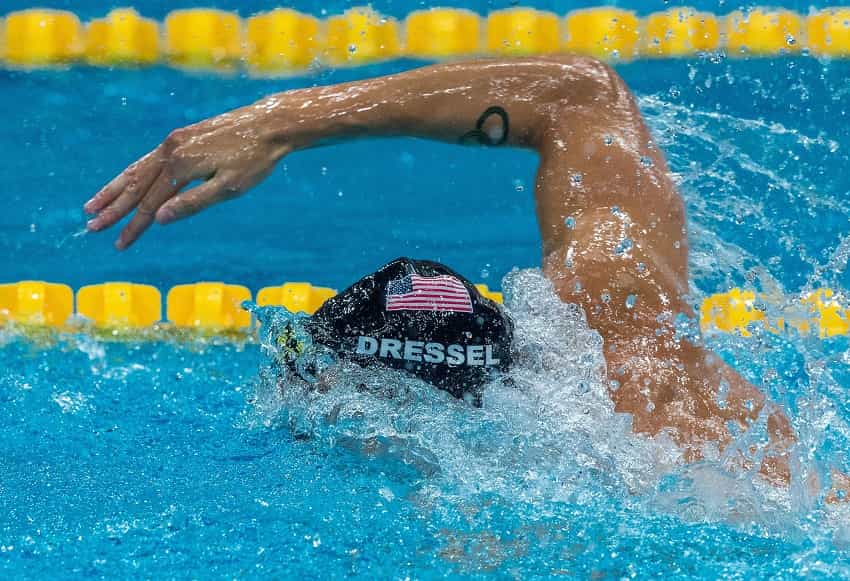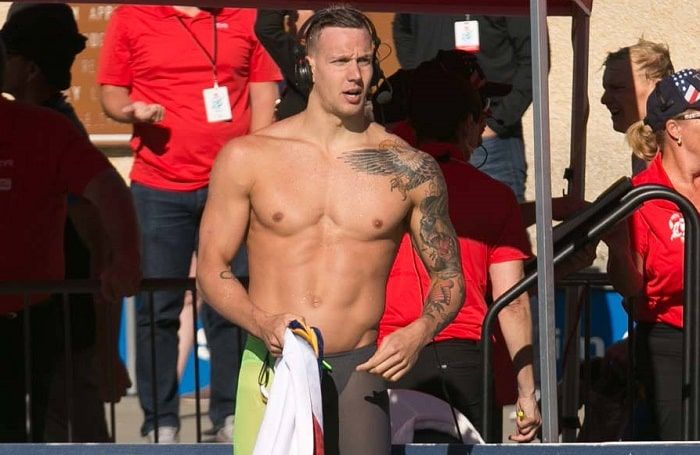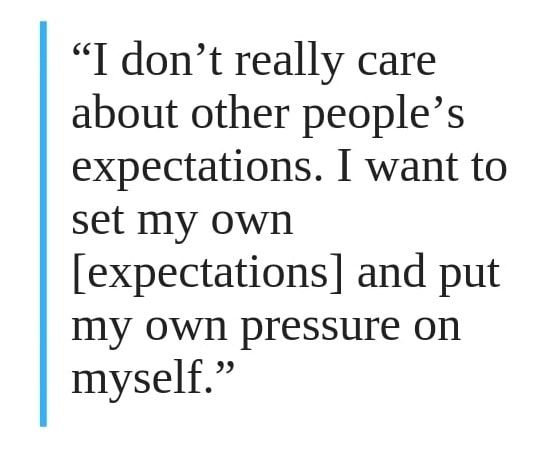It’s March 23, 2018, and inside the Jean K. Freeman Aquatic Center everyone is standing. Everyone. Coaches, swimmers, parents, spectators. The sense in the building at the men’s NCAA championship meet is universal—something historic is about to happen.
And Caeleb Dressel doesn’t disappoint.
After a heavy silence and the starter’s signal the finalists for the men’s 50-yard freestyle launch themselves from the blocks. Dressel body-surfs to a quick lead, extending it to a full body length in the shortest event on the swimming program.
When Dressel touches the wall, it’s official—he has completely obliterated what was once thought possible in the 50-yard freestyle.
Beside his name on the scoreboard, 17.63.
The spectators, coaches, swimmers, erupt with a mixture of cheering and complete disbelief. Hands go on heads, mouths agape, complete bedlam.
In less than 24 hours Dressel has dropped a wrecking ball on the 50-yard freestyle US Open record, going from 18.11 to 17.63.
Nearly half a second.
In a 50.
Dressel’s post-race interview provides a telling glimpse into his mindset. He is asked what his goal time was coming into the meet.
“Everyone in the world of swimming probably expected a 17.9,” Dressel says.
This is very true—the belief was that Dressel would be the first man to crack the 18 second barrier. Dressel’s best time heading into Minnesota was 18.20. Commentators thought he just might be the person to swim a 17.9.
But Dressel was looking much further.
The Power of Going Big
Having big goals isn’t rare. We all secretly harbor fantasies of winning the Olympics, dropping a stunning amount of time off our PB, or smashing a US Open record by nearly half a second.
But few of us actually try to live out those dreams.
Which is unfortunate.
The big goals and dreams are scary, but they are also motivating if we pursue them.
They encourage us to look deep into what is possible in the water. While I preach often on the importance of working the details and being process-oriented, what gets us motivated to do those things in the first place is the big goal.
Think of those greasy goals like the Big Bang—that initial blast of heat and energy that powers everything comes next.
Having the big goal isn’t why so many swimmers struggle with them—it’s battling the self-doubt and external expectations that follow: Can I do this? Is this actually possible? Do I have the talent and commitment to follow through?
Big goals force you to question these limiting thoughts
While big goals are easy and safe while we are in the comfort of our own thoughts, the moment it turns to action and planning things change.
Your big goals require you to continually battle what you (and others) perceive as your limits. It’s an ongoing struggle to balance being realistic and completely insane.
We tend to play it cautious. No sense in dreaming too big, we remind ourselves whenever we get carried away with our goals.
Far too often we short-sell our ability to be awesome in the water.
The reality is that you don’t know yourself as well as you think you do. You are far tougher than you give yourself credit for. Far more resilient than you know. And as much as you think that you have a grip on precisely what you are capable of, you don’t know until you repeatedly and whole-heartedly give your all.
Maybe it’s because of a peer group that encourages mediocrity (“Why would you want to stay after practice and do extra?”), or it comes from yourself (“What makes me think that I can accomplish this goal?”), we limit what we think is possible in the water.
Having a big goal challenges your overly cautious expectations.
Don’t just talk big, train big
The big dream is just that until there is a plan to achieve it. You can say that you want to be the kind of swimmer that wins at Nationals, and that’s great—but what does that look like on a daily basis?
What are you doing today? Tomorrow? Next week?
Your big dreams should come packaged with a process and expectations for what you are going to do on the daily to achieve them.
While most of us think about the gold medals, the records and the glory, few will actually put a plan into place to go after them.
Sitting down and seeing the work necessary, the stages of development to come, the investment of time and energy…well, at this stage you might decide this isn’t for you.
And that’s fine.
But if you are serious about your goals, build a serious plan around them.
Excellence attracts expectations
Dressel didn’t advertise his goal times over the course of the season. He knew what people were saying was possible (or not possible), but he had his eyes on a bigger prize.
There is a lesson here: if you are doing the work and you have your big goals, things will take care of themselves. Don’t waste your time and focus on what other people are saying you can (or can’t) do.
There were plenty of well-respected coaches and authorities on the sport who didn’t think it was possible for someone to swim a 17.6 from a flat start in the 50-yard freestyle.
On the week of NCAAs, Dressel shut down his social media accounts and focused on what he thought was possible.
“I’ve set my own goals and ignore all the expectations and what people expect me to do,” he said.
In today’s day and age everyone has their own personal megaphone to tell you what they think. Which can make external expectations and pressure overwhelming if you are putting yourself out there and paying attention to it.
Chasing excellence naturally attracts the thoughts, opinions and expectations of others. Whether it’s jealousy, small-minded thinking or straight-up nastiness, the toxic expectations of others can derail our focus and energy.
Don’t fall into the trap of worrying about what others think about you and your swimming. It’s your swimming—no one else’s. You are the one that is toiling away, putting everything you have into the pool on those early mornings.
Like Dressel, decide for yourself what you want for your time in the water.
More Stuff Like This:
How Caeleb Dressel Used a Logbook to Become the Fastest Man Ever Over 50 Yards. The fastest man ever across 50 yards used a logbook to develop his insane speed and uncanny feel for the water. Here is how to make this tool work for you as well.
7 Reasons Caeleb Dressel’s Start is the Best in the World. Caeleb Dressel’s start has become a thing of legend. Here are some things you can learn from the fastest swimmer on the planet.
Image Credits: Alamy Stock/JD Lasica

















